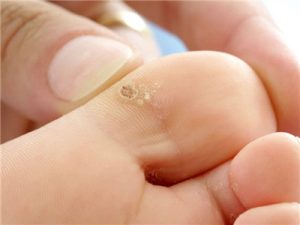Wart Removal Singapore – Price and Treatment Options
Get your wart removed by our doctor in our Singapore aesthetic clinic today.
Featured On:




What is the most common treatment for wart removal?

Cryotherapy
A common treatment for wart removal in Singapore is cryotherapy or freezing. Cryotherapy uses liquid nitrogen to freeze warts. A doctor may administer the treatment through a spray, swab or cotton ball. The freezing temperature can range from -5 to -10 degrees Celsius. After the wart has been frozen, it will blister and fall off naturally in one to two weeks. This is also commonly used for other skin conditions like skin tags and mole removals and is a very effective treatment.
Cryotherapy is recommended for patients who have warts that are bigger than one-half inch (1 cm) in diameter, but this method can also be used for smaller warts. If you have a large number of warts on your body, you may need multiple treatments to remove them all.
Cryotherapy is considered an effective treatment for wart removal in Singapore but it may not be suitable for everyone. If you have diabetes, your skin may take longer to heal from the cryotherapy treatment than someone who doesn’t have diabetes.
In addition, people with bleeding disorders or those who take blood thinners should not use this method of treatment because it can cause excessive bleeding.
Electrosurgery (Electrocautery) and Curettage
Curettage involves scraping the wart off with a sharp instrument called a curette. This method is often used in combination with electrosurgery (burning the wart with an electric current). Curettage is usually only recommended for warts that haven’t responded to other treatments.
Wart removal Pulsed-Dye Laser Surgery
Laser surgery uses an intense beam of light to destroy the abnormal tissue that makes up warts while sparing the surrounding healthy tissue. This treatment option is recommended for hard-to-reach areas like genital warts or areas in your urethra. However, using such laser treatment might leave scars around the treated region.
Wart removal by salicylic acid
Salicylic acid is a type of beta-hydroxy acid and works by dissolving the protein that makes up warts while also promoting skin cell turnover which helps prevent new ones from forming.
Salicylic acid is available over-the-counter in various strengths and can be used at home by applying it directly to the wart with a cotton swab or pad until it dissolves or peels away (this typically takes 1-2 weeks).
However, stronger concentrations may require a prescription and should only be used under the supervision of a doctor or dermatologist as they’re associated with more side effects like skin irritation and burns.
Wart removal Singapore by cantharidin
Cantharidin is a chemical that’s derived from the blister beetle and works by causing the top layer of skin cells to blister and peel off, taking the wart with it.
Cantharidin is only available through a prescription and should only be used under the supervision of a doctor as an improper application can lead to serious side effects like burns, blisters and scarring. The procedure typically takes 1-2 visits and may require several applications before the wart falls off completely.
Wart Removal in Singapore Price List
Here at Pure Wellness Clinic, we aim to be transparent and give our Singapore patients affordable treatment options to remove their warts. These are the price range for by treatment types:
Cryotherapy – from $100
Laser surgery – from $100
Electrocautery – from $250
Can warts be removed without surgery?
Warts are usually harmless and don’t require treatment. However, some people opt to have them removed for cosmetic reasons or because they cause pain, itching or bleeding. It is a very common skin condition because of the prevalence of the Human papillomavirus among the population in Singapore, which causes skin or mucous membrane growth.
There is a variety of wart removal Singapore methods available, both surgical and nonsurgical. Nonsurgical treatments for wart removals would include Anti-warts solutions like Antiverrugas ISDIN or Salicylic acid as mentioned that is available in pharmacies.
When should I see a doctor for my wart?
Most warts will eventually go away on their own without treatment within two years. However, you should see your doctor if you have warts that are painful, bleeding, spreading or any form of discomfort.
You should also see your doctor if you have diabetes or another condition that impairs your immune system as you may be at risk for developing more severe problems from warts, such as genital warts.
Besides that, one should head to an aesthetic clinic or dermatologist if they want to get their warts removed for aesthetic purposes. Just like other skin conditions (for example, moles, skin tags, scars), you should get an expert opinion on the removal and treatment options.
What are genital warts?
Genital warts are growths that appear on the genitals or around the anus. These warts are a result of the human papillomavirus infection in the population. Genital warts are usually flesh-coloured or whitish growths that can be small or large, raised or flat.
They can occur alone or in groups and usually don’t cause pain unless they’re irritated by clothing or sexual activity. In women, genital warts can grow inside the vagina or on the cervix, vulva, thighs, groin or anus. In men, they can grow on the penis, scrotum, thighs, groin or anus.
Genital warts are highly contagious and are spread through sexual contact. The risk of developing genital warts increases if you have multiple sexual partners, engage in anal sex, have a weakened immune system or use tobacco products. There’s no cure for HPV but there are treatments available for genital warts. Treatment options include cryotherapy, laser surgery, topical medications and surgical removal.
Why do people get warts?
Warts are growths that appear on the skin and are caused by the human papillomavirus infection (HPV). HPV is a virus that’s spread via close contact. It can also be spread through contact with contaminated surfaces, such as towels or floors.
There are more than 100 types of HPV and not all of them cause warts. Some types of HPV can cause genital warts, plantar warts, seed warts, while others can develop into cancers . Warts usually occur on the hands, feet, soles of your feet or face but can occur on any part of the body. They’re more common in children and young adults but can occur at any age.
What are the risk factors for warts?
The following factors can increase your risk of developing warts:
Contact with someone who has warts: Warts are highly contagious and are spread through skin-to-skin contact or contact with contaminated surfaces, such as towels or floors. If you have close contact with someone who has warts, you’re at an increased risk of developing them yourself.
Damaged skin: Warts can enter your body through cuts or other breaks in your skin.
Weak immune system: People with conditions that weaken their immune system, such as HIV/AIDS, are at an increased risk of developing warts and plantar warts.
Close contact with someone that has HPV.
How are warts diagnosed?
Your doctor will usually be able to diagnose warts based on a physical examination. In some cases, your doctor may order a biopsy to rule out other conditions with similar symptoms.
A biopsy involves removing a small piece of tissue from the wart so it can be examined under a microscope. Different kinds of warts may occur in individuals and different areas. Areas common for warts include one’s face, genitals, soles of their feet, fingers or hands. Common types of warts include plantar warts, seed warts and genital warts.
Prevention of Warts
There are a few things you can do to prevent warts. The most important is to keep your feet clean and dry. It is also important to avoid walking barefoot in public places. If you have warts, it is important to keep them covered with a bandage to prevent the spread of the virus.
Can I remove warts on my own?
As mentioned above, there are topical solutions that you can buy like salicylic acid to remove your warts. They can be bought in Singapore at your local pharmacy like Guardian or Watsons.
There are many common wart removal home remedies commonly used in Singapore. Home remedies for wart removal include using duct tape, applying apple cider vinegar or banana peel, and soaking in warm water mixed with baking soda or aspirin. While these home remedies may help remove warts, there’s no scientific evidence to support their use. There may be serious side effects if you treat yourself with this. It is recommended to talk to your doctor or dermatologist for permanent removal of your wart.
